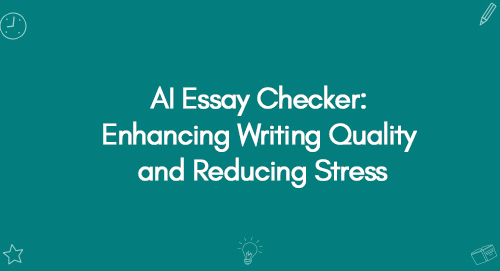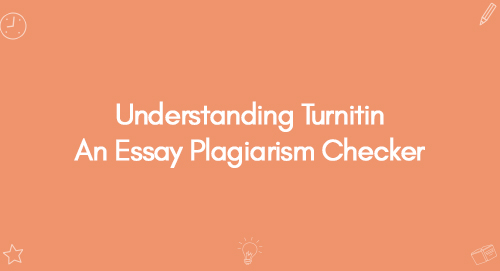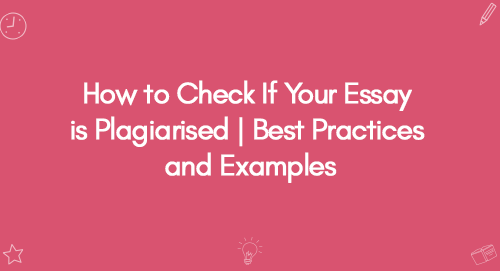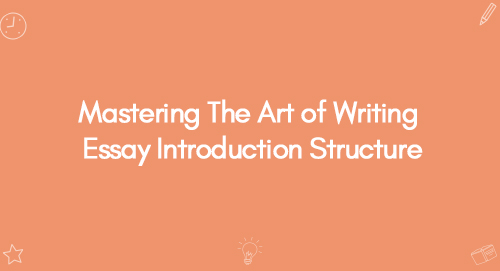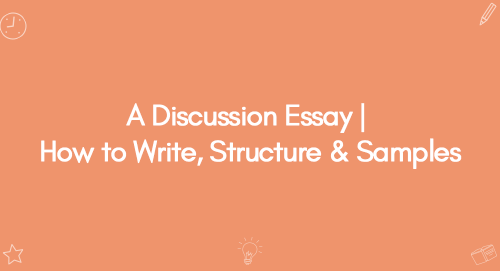Critical Appraisal Example Essay | A+ Writing Advice and Useful Tips
Critical Appraisal Example Essay | A+ Writing Advice and Useful Tips

Nursing Essay Examples | A Structured Approach and Worthy Suggestions
January 17, 2024
How to Write a Well-Organized AP Lang Rhetorical Analysis Essay: A Step-by-Step Guide
January 19, 2024A critical appraisal essay is a written analysis and evaluation of a piece of literature, research paper, article, or any other type of document.
Critical appraisal essays combine the skills of critical reading, critical thinking, and critical essay writing. This type of essay aims to assess the strengths and weaknesses of the material under consideration, providing a thorough and objective review.
You can review noteworthy essay examples here:
Learn How to Write a Critical Analysis Essay
This essay provides a comprehensive overview of critical appraisal essays, illustrating tips, types, and examples.
Example: 1 Good Essay Examples And Key Components
Example: 2 Climate Change Essay Examples
Best Examples of Critical Appraisal Example Essay
Two of the best examples of critical appraisal essays delve into the key takeaways that make them ideal.
Example 1: An Insightful Critical Appraisal Example Essay
The critical appraisal example highlights the strengths and weaknesses of the article, providing insights into its contribution to the discussion on social media and mental health.
Title: A Critical Appraisal of "The Impact of Social Media on Mental Health"
Introduction
Social media is extremely popular nowadays and has changed how people connect, share information, and see the world. The article "The Impact of Social Media on Mental Health" by Dr. Jane Smith is being analyzed in a critical appraisal essay. The essay will scrutinize the methodology, evidence presented and the overall impact of the article on the discussion about this important topic.
Summary of the Material
Dr Jane Smith focuses on the complicated bond between using social media and how it affects our mental state. The article explores many areas, such as how often you engage with social media, what content you consume and how it can affect your mental health. According to Smith's research, there are positive and negative relationships between various variables, which helps us better comprehend the topic.
The methodology used is a mixed-methods approach, including quantitative surveys and qualitative interviews. Although this technique facilitates an exhaustive examination of the subject, it is uncertain whether the sample is big enough to be considered representative. Furthermore, using self-reported data in research can introduce bias, as individuals may not always report their true feelings or experiences. Although there are some constraints, combining the research methods increases the study's dependability.
Evaluation of Evidence and Support
Smith has a lot of evidence to back up her statements. She uses numbers, real-life examples, and other people's opinions to convince us she's right. Adding information collected over a longer time provides a more comprehensive understanding of this relationship. On the other hand, some of the statistical data lacks context, making it difficult for the readers to understand their significance.
Critique of the Material
The article explains the relationship between social media and mental health fairly and impartially. However, it fails to consider the other variables that may impact the correlation and the outcome. Diving into the depths of individual variations and how prior psychological problems can significantly impact the research's effectiveness could boost the study's quality.
Comparison with Other Works
Comparing Smith's work with existing literature reveals both alignment and divergence. While her findings resonate with some earlier studies, the article introduces unique insights. The comparative analysis highlights gaps in the current body of knowledge and emphasizes the need for further research on specific demographic groups.
Overall Impact and Significance
"The Impact of Social Media on Mental Health" contributes significantly to the ongoing discourse by providing a nuanced understanding of the subject. Though not exhaustive, the findings open avenues for future research and inform public discourse on responsible social media usage.
Conclusion
In conclusion, Dr Jane Smith's article navigates the intricate landscape of social media's impact on mental health. While the study exhibits strengths in its comprehensive methodology and balanced presentation of findings, addressing limitations and delving deeper into potential confounding factors could enhance its credibility. This critical appraisal recognizes the article's contribution to the field and underscores the importance of continued research to unravel the complexities of social media's influence on mental health.

Example 2: A Balanced Critical Appraisal Essay Example
The second example identifies the review's strengths while suggesting areas for improvement, emphasizing the need for a balanced discussion of challenges and risks associated with AI in healthcare.
Title: A Critical Appraisal of "The Role of Artificial Intelligence in Healthcare: A Review of Current Applications and Future Prospects"
Introduction
AI is redefining every profession, including how the healthcare system works, and the benefit of using the technology is phenomenal. This essay critically appraises John's article "The Role of Artificial Intelligence in Healthcare: "An Overview from an Expert in the Field of Current and Potential Developments in the Field of Innovation" as an innovative thinker. The objective is to evaluate the article's strengths and weaknesses by analysing its impact on comprehending AI applications in healthcare.
Body Paragraphs
The article by Dr Innovator provides an in-depth analysis of how AI is being utilized in the medical field and discusses the possible advancements that may emerge shortly. The author discusses how AI can improve efficiency and outcomes in the medical field by using it in diagnostics, treatment planning and patient care. The article on the integration of AI in healthcare also talks about the difficulties this technology faces and the ethical problems that must be addressed.
In his methodology, Dr. Innovator pulls together information from many places to create a clear picture. It is clear what the selection criteria for including studies are, and they seem to prioritize recent publications with a good reputation. Therefore, to reduce the possibility of bias, a systematic review approach should be used to thoroughly examine all relevant studies.
The paper effectively uses sources from various fields to provide a comprehensive view of healthcare applications using AI. Visual aids make complex data and information more understandable and clear. Moreover, some parts of the article don't contain specific examples or case studies; hence, it's difficult for readers to understand real-world applications fully.
Critique
The article provides a good introduction to how AI is used in healthcare. Still, it appears to have an overly positive outlook that disregards the difficulties and limitations of implementing AI systems. While the article briefly overviews ethical considerations, discussing potential risks and societal repercussions would strengthen it.
Comparison with Other Articles
Dr. Innovator effectively contextualizes the article within the existing literature on AI in healthcare. A comparative analysis reveals coherence with other reviews and research studies, highlighting the consistency of findings. However, a deeper exploration of conflicting or alternative viewpoints would provide a more nuanced understanding of the field.
Impact and Importance
"The Role of Artificial Intelligence in Healthcare: This paper helps get a broad understanding of the application of AI in healthcare. This article is important because it tells us about AI's present and future possibilities in healthcare. It can help doctors, government people, and scientists improve their field.
Conclusion
Dr. John's article about the usage of AI in healthcare is informative and gives a deep insight into the subject. The official paper acknowledges the positive aspects of AI. Still, there is a need for a more comprehensive discussion concerning its disadvantages and potential risks that might arise from its implementation.
7 Useful Tips for Writing Critical Appraisal Example Essay
Following some effective writing techniques can significantly enhance your academic essay writing ability. Incorporate the following tips into your writing practices to improve your critical analyses:
Cross-Reference your Outline
By following the outline of your assignment, you can stay on track while writing and ensure that everything you want to say is covered.
Use Transitional Words and Phrases
Using transitional words can help your writing flow better and make it more clear.
Be Concise in your Writing
Brief and concise writing is much easier for readers to understand and can help pick up the main point of your message more quickly.
Write Logically in the Critical Appraisal Example Essay
Organize your critical analysis in a way that makes sense and has a natural flow of ideas.
Rephrase the Sentence in the Third-Person Voice
Writing a critical analysis in the third-person voice gives the work an air of authority. Your article is viewed as credible based on the conclusion of its contents.
Read the Required Material Thoroughly
Read the text at least twice to get the overall idea, then take detailed notes. After completing the first draft, take some time off before starting the second draft. This will give you a fresh perspective on your work and help you improve it. Giving yourself time before you tackle the essay can help you concentrate and sort out what you need to do to improve your essay.
Make an Outline
Creating an outline first can aid you in writing faster as well as organized before you start writing. It is okay to deviate slightly from the outline. You can edit it later when you start writing.
Free Premier Essay Writing Topics
Essay Writing is an essential part of academics which presents the ideas, arguments, opinions, or positions of the writer regarding the topic. The writer supports his claims using facts, evidence, or survey studies.
- Clear presentation or understanding of the type of essay
- An appealing introduction with an unambiguous thesis statement
- A well-defined structure of body paragraphs supporting the thesis
A prospective conclusion with an optimistic tone
Types of Critical Appraisal Essays
Various forms of critical analysis essay writing can be encountered while doing critical writing as a student. They include the following:
- Sociological critique.
- Sociocultural appraisal.
- Reader-response criticism.
- Gender-based critical writing.
- Mythological critique.
- Biographical writing.
- History writing analysis.
- Psychoanalytical criticism.
- Formalist criticism and appraisal
What Type of Language Should Be Used In a Critical Appraisal Example Essay? A+ Advice
Because critical analysis papers are written in an academic setting, you should use formal language, which means:
- No slang
- No contractions
- Don't utilize "I" or "we" or "me."
- Don’t use "in my opinion" or "I think" sentences. When writing a critical analysis, it’s important to ensure the reader understands that your claims are your opinions, not facts from elsewhere.
If your teacher gives you a writing style guide, follow the instructions in the manual when completing your assignments.
Conclusion
Writing a critical appraisal essay, you'll improve your writing skills and develop the required critical thinking abilities. Don't write a summary of the entire book in your essay. In your essay, you must describe your personal experiences and ideas related to the topic rather than presenting a story plot. Start by stating your position in your thesis, then spend the paper building your argument with supporting evidence. Our guide can help you achieve guaranteed success in writing an A+ essay.


